Year published :March 2023
Pages :368 pp.
Size :15 x 23 cm., paperback
Color illustrations :51
Rights :Thailand, Cambodia, Laos, Myanmar, Vietnam
ISBN: 9788776943271
Rethinking Community in Myanmar: Practices of We-Formation among Muslims and Hindus in Urban Yangon
by NIAS PressBy Judith Beyer
This is the first anthropological monograph of Muslim and Hindu lives in contemporary Myanmar. In it, Judith Beyer introduces the concept of “we-formation” as a fundamental yet underexplored capacity of humans to relate to one another outside of and apart from demarcated ethno-religious lines and corporate groups. We-formation complements the established sociological concept of community, which suggests shared origins, beliefs, values, and belonging. Community is not only a key term in academic debates; it is also a hot topic among Beyer’s interlocutors in urban Yangon, who draw on it to make claims about themselves and others. Invoking “community” is a conscious and strategic act, even as it asserts and reinforces stereotypes of Hindus and Muslims as minorities. In Myanmar, this understanding of community keeps self-identified members of these groups in a subaltern position vis-à-vis the Buddhist majority population.
Beyer demonstrates the concept’s enduring political and legal role since being imposed on “Burmese Indians” under colonial British rule. But individuals are always more than members of groups. The author draws on ethnomethodology and existential anthropology to reveal how people’s bodily movements, verbal articulations, and non-verbal expressions in communal spaces are crucial elements in practices of we-formation. Her participant observation in mosques and temples, during rituals and processions, and in private homes reveals a sensitivity to tacit and intercorporeal phenomena that is still rare in anthropological analysis.
Rethinking Community in Myanmar develops a theoretical and methodological approach that reconciles individuality and intersubjectivity and that is applicable far beyond the Southeast Asian context. Its focus on we-formation also offers insights into the dynamics of resistance to the attempted military coup of 2021. The newly formed civil disobedience movement derives its power not only from having a common enemy, but also from each individual’s determination to live freely in a more just society.
About the Author
Judith Beyer is Professor of Social and Political Anthropology at the University of Konstanz. She specializes in legal and political anthropology and has long-term ethnographic field experience in both Southeast Asia and Central Asia. In Myanmar, her research focuses on ethno-religious minorities, community, activism, statelessness and the state.
What others are saying
“Beyer’s book and her fascinating fieldwork in the varied groups of Indian descent in Rangoon, reshapes not just how we understand people who have long been dismissively homogenized in Burmese and academic discourse, but it offers insightful reformulations of how people construct identity unlimited by the categories imposed upon them.” — Alicia Turner, Assistant Professor of Humanities and Religious Studies at York University
“Judith Beyer’s impressive ethnographic account of Muslims and Hindus in Yangon invites us to consider the dialectic between everyday experiences of co-existence and categorical claims of community without collapsing the distinctions between these practices. This monograph introduces a valuable theoretical framework for delving into the formation of we-ness without assuming that this is inevitably conjoined with processes of othering. I expect that concepts like ‘we-formation’ will quickly be adopted by scholars in a variety of fields including myself.” — Vered Amit, Professor of Sociology and Anthropology at Concordia University, Montreal, Canada
“Judith Beyer’s brilliant ethnography of ‘practices of we-formation’ among Muslims and Hindus in urban Yangon compellingly demonstrates that neither the individual nor the community is sui generis; each is a condition of the possibility of the other. Beyer’s in-depth fieldwork, vivid writing, and theoretical insights make this book a stunning contribution to existential anthropology.” — Michael Jackson, Distinguished Professor of World Religions at Harvard Divinity School

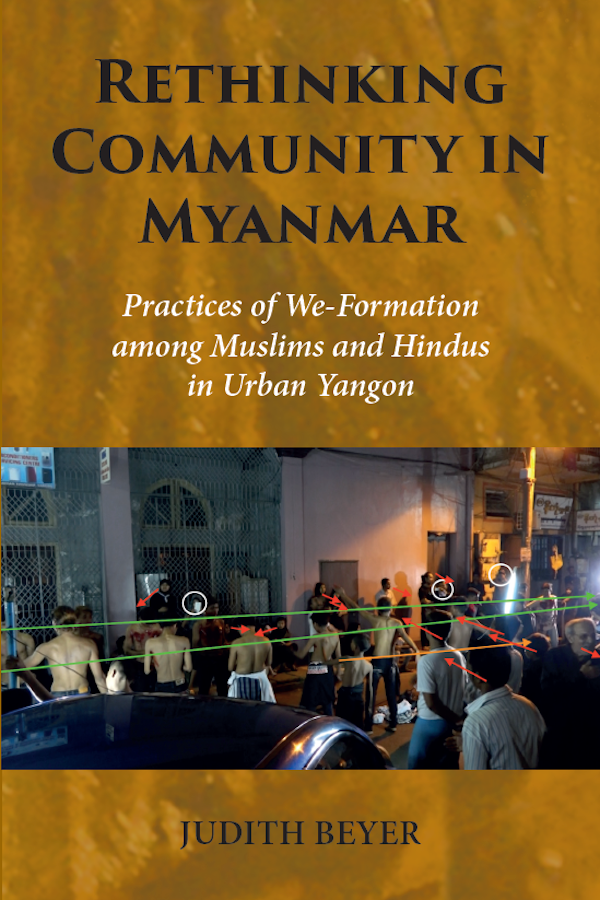



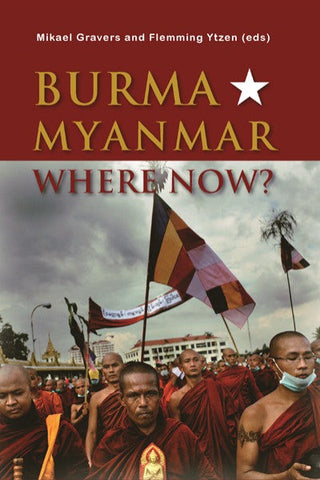

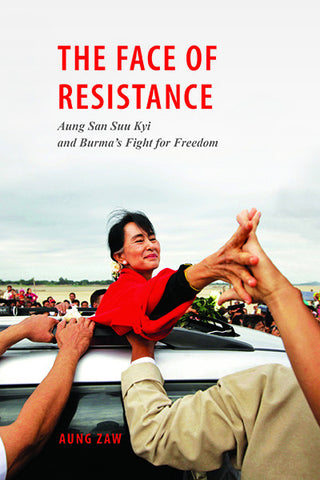
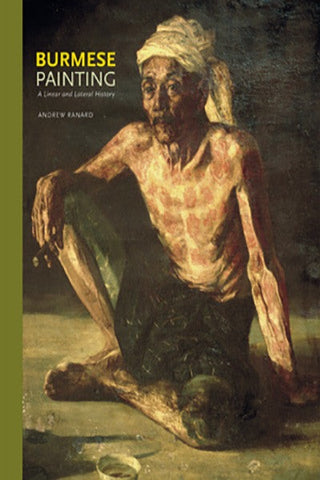
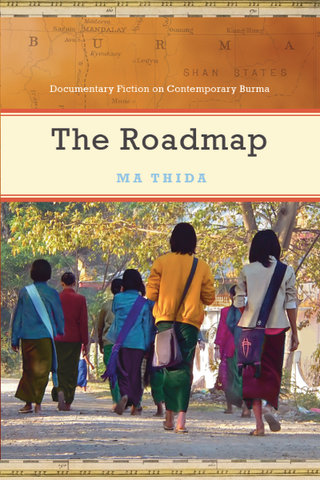
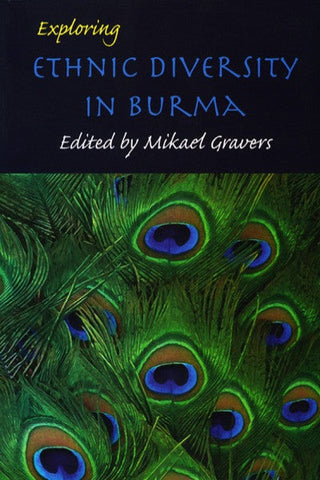
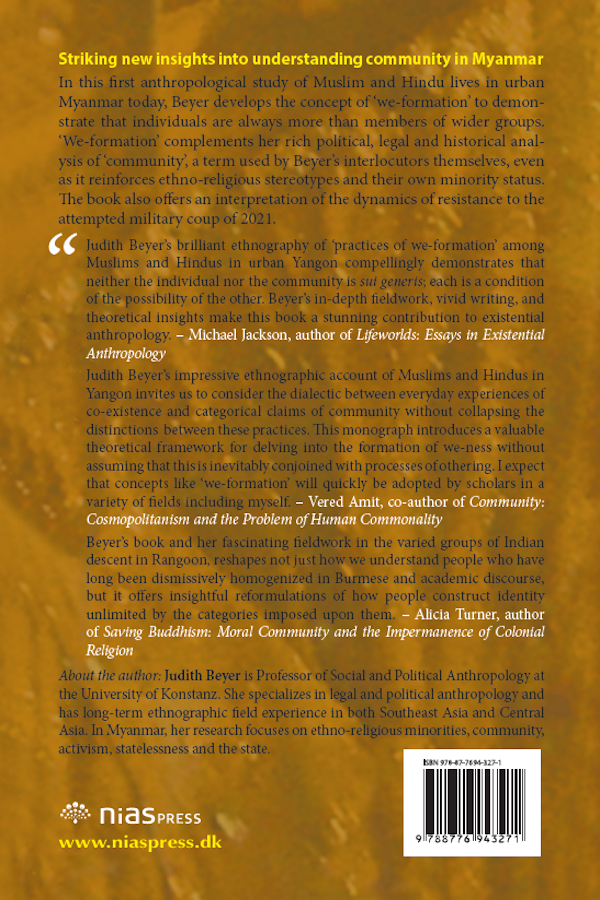
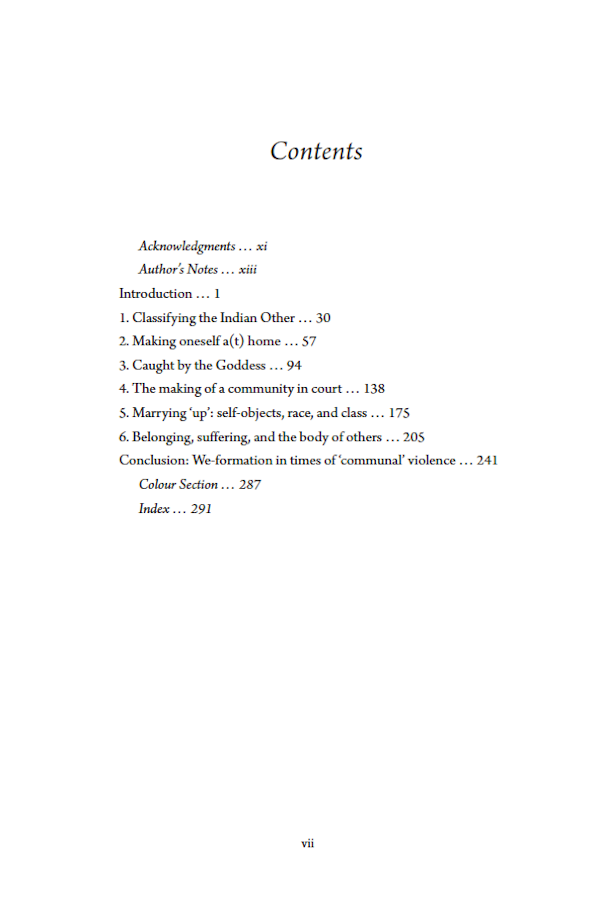
Share this item: